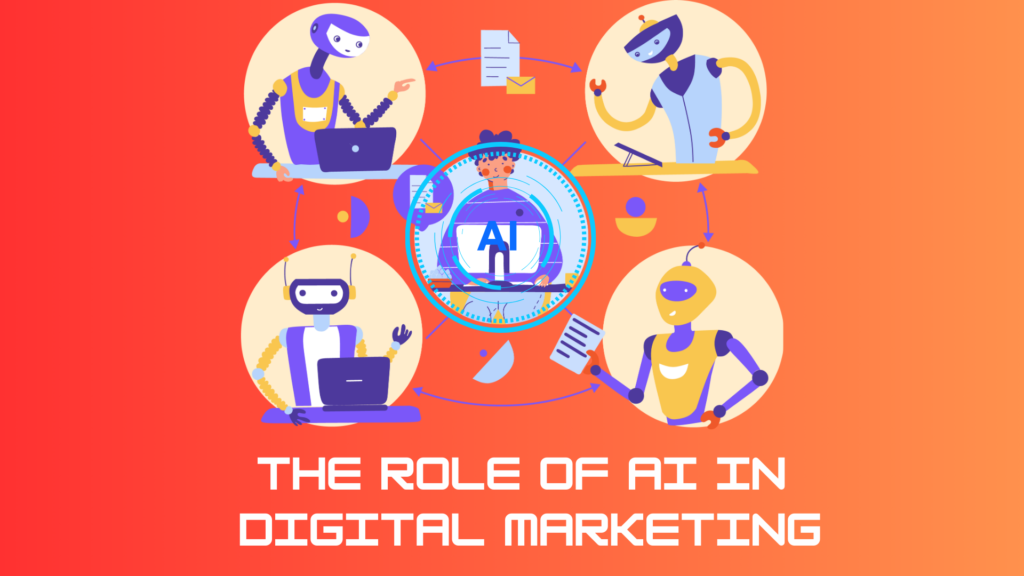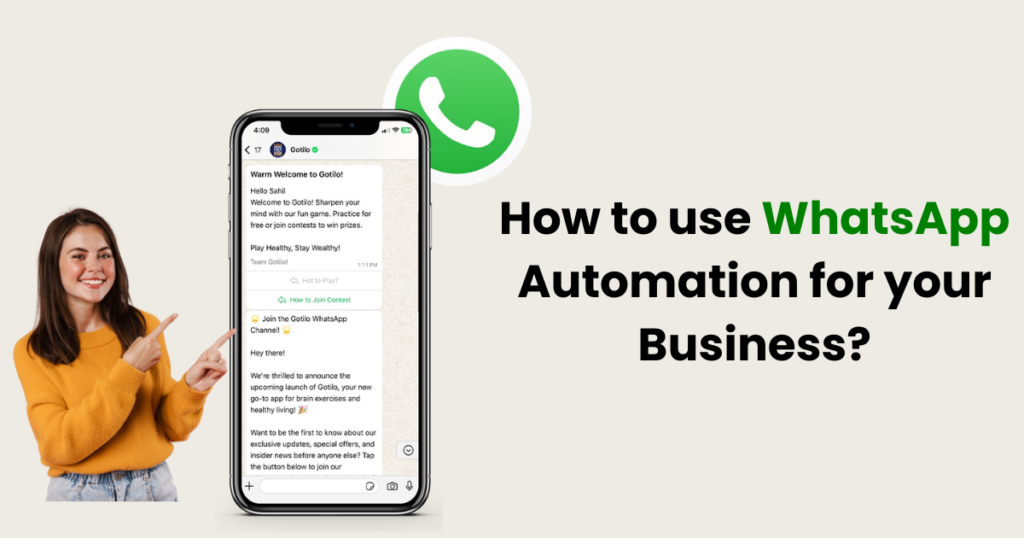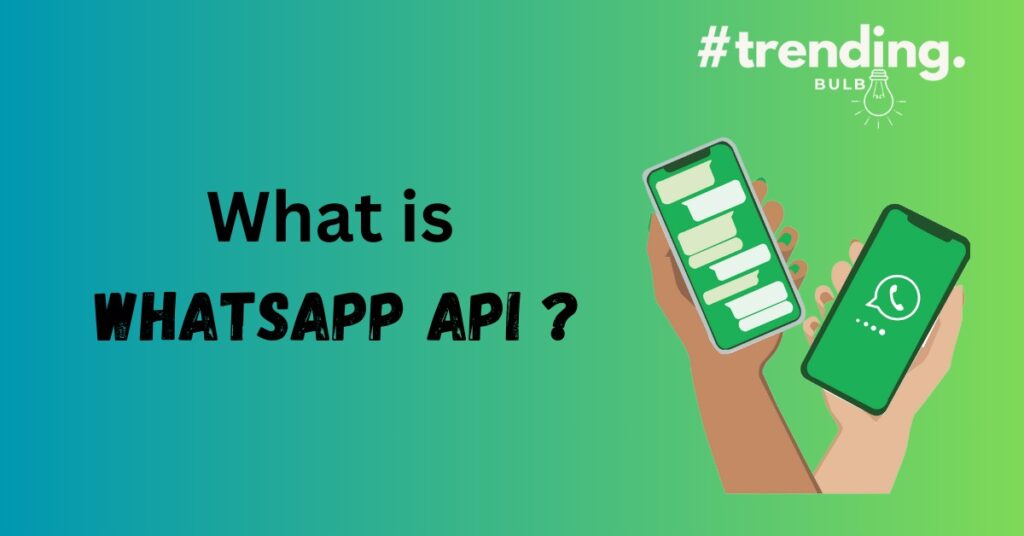
In today’s fast-paced digital world, businesses are always on the lookout for innovative ways to connect with their audience and stay ahead of the competition. Artificial Intelligence (AI) has emerged as a game changer in digital marketing, offering powerful tools and strategies that enhance marketing efforts and drive success. In this blog, we’ll explore how AI is revolutionizing digital marketing, making it more personalized, efficient, and effective.
Personalized Customer Experiences
One of the most significant benefits of AI in digital marketing is its ability to deliver personalized customer experiences. AI algorithms analyze user data to understand preferences and behaviors, allowing businesses to tailor their content and recommendations accordingly.
For example, platforms like Netflix and Amazon use AI to suggest movies, shows, and products based on past interactions. This level of personalization not only enhances user satisfaction but also increases engagement and conversion rates. AI helps businesses create dynamic content that resonates with individual users, making their marketing efforts more impactful.
Enhanced Customer Insights
Understanding customer behavior is crucial for effective marketing. AI excels in analyzing vast amounts of data quickly and accurately. Tools like Google Analytics and HubSpot use AI to provide deep insights into customer behavior, preferences, and trends.
Predictive analytics, powered by AI, forecasts future trends and customer actions based on historical data. This enables businesses to make informed decisions and develop strategies that align with anticipated market shifts. By leveraging these insights, companies can stay ahead of the curve and optimize their marketing efforts.
Automation of Marketing Tasks
Marketing automation is another area where AI shines. Automating routine tasks saves time and ensures consistency across campaigns.
Email Marketing: AI enhances email marketing by segmenting audiences and creating personalized email campaigns. Automated tools can send targeted messages at optimal times, improving open rates and engagement.
Social Media Management: AI tools like Hootsuite and Buffer help businesses manage their social media presence by automating posts, scheduling content, and engaging with followers. These tools ensure a consistent online presence without requiring constant manual effort.
Chatbots: AI-powered chatbots provide 24/7 customer support and lead generation. They handle inquiries, offer assistance, and guide users through the buying process, enhancing the customer experience and freeing up human resources for more complex tasks.
Improved Ad Targeting and Campaign Optimization
AI plays a crucial role in optimizing advertising efforts.
Programmatic Advertising: AI automates the buying and placement of ads through real-time bidding. This ensures that ads are shown to the most relevant audience, maximizing the chances of engagement and conversion.
Ad Performance Analysis: AI tools analyze ad performance metrics and make real-time adjustments to optimize campaigns. By continuously monitoring and adjusting bids and placements, AI helps businesses achieve better returns on their advertising investments.
Content Creation and Curation
Creating high-quality content is essential for digital marketing success. AI is transforming content creation and curation in several ways.
AI-Generated Content: Tools like GPT-4 can generate blog posts, articles, and social media content based on specified topics and guidelines. While AI-generated content may need human oversight, it can significantly speed up the content creation process and ensure consistency.
Content Curation: AI algorithms can sift through vast amounts of information to select and recommend relevant content for audiences. This helps businesses maintain an engaging content stream without having to manually curate every piece.
SEO and SEM Enhancements
Search Engine Optimization (SEO) and Search Engine Marketing (SEM) are critical components of digital marketing. AI enhances these areas in various ways.
AI for SEO: AI tools optimize website content and structure to improve search engine rankings. Platforms like SEMrush and Moz use AI to analyze keywords, track performance, and suggest improvements, helping businesses achieve higher visibility in search results.
Smart Bidding in SEM: AI optimizes bidding strategies for search engine ads. By analyzing performance data and adjusting bids in real-time, AI ensures that ads are placed effectively to reach the right audience at the right time.
Ethical Considerations and Challenges
While AI offers numerous benefits, it also comes with ethical considerations and challenges.
Data Privacy: With AI’s ability to analyze vast amounts of personal data, businesses must ensure they comply with data privacy regulations like GDPR. Transparent data practices and robust security measures are essential to protect user information.
Bias and Fairness: AI systems must be designed to avoid bias and ensure fair outcomes. Businesses should regularly review and test AI algorithms to identify and address any potential biases.
Conclusion
AI is reshaping digital marketing by offering personalized experiences, enhancing customer insights, automating tasks, optimizing ad campaigns, and improving content strategies. Embracing AI technologies allows businesses to stay competitive and effectively engage with their audience. As AI continues to evolve, its role in digital marketing will become even more pivotal, driving innovation and success in the industry.
Businesses that leverage AI tools and strategies will not only streamline their marketing efforts but also deliver more relevant and engaging experiences to their customers. The future of digital marketing is here, and AI is leading the way.
Additional Resources
For those interested in exploring AI tools and platforms, here are some useful links:
For further reading on AI and digital marketing, check out:
- The Role of AI in Digital Marketing
Embrace the power of AI in your digital marketing strategy and watch your business thrive in the digital age.

